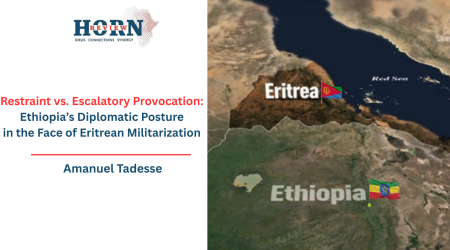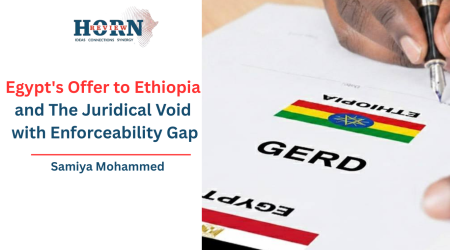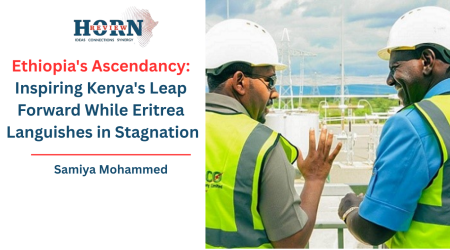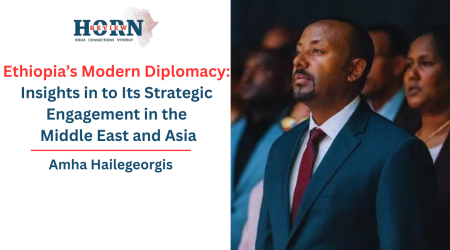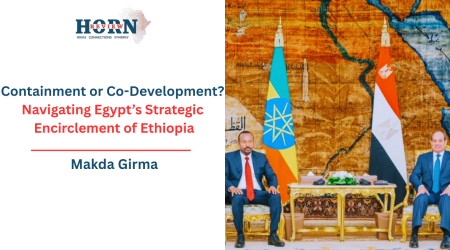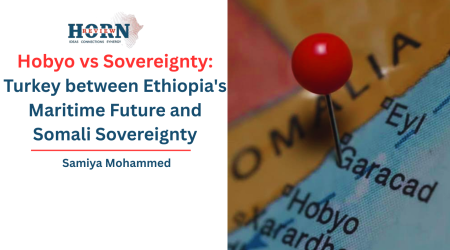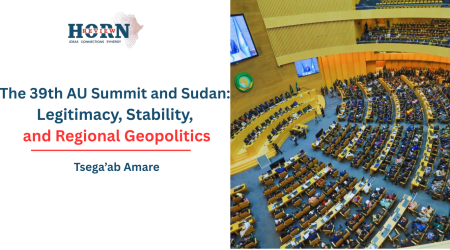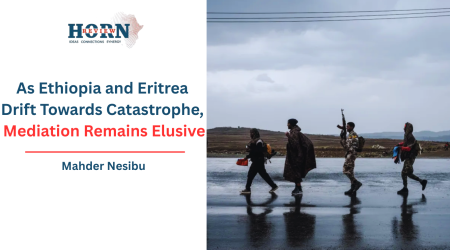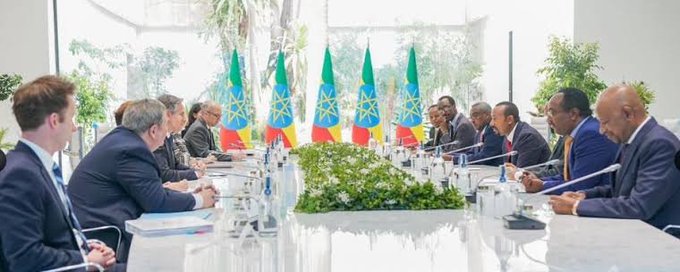
30
Mar
Recalibrating U.S.-Ethiopia Relations: Diplomacy, Security, and Regional Challenges
The recent exchange between U.S. Secretary of State Marco Rubio and Ethiopian Prime Minister Abiy Ahmed underscores the evolving dynamics of U.S.-Ethiopia relations, centered on shared interests in counterterrorism, maritime access, and regional stability in the Horn of Africa. Given Ethiopia’s pivotal role in regional security, this dialogue highlights the necessity of sustained cooperation between the two nations amid shifting geopolitical currents.
For decades, Ethiopia and the United States have maintained a strategic partnership, particularly in counterterrorism efforts. Ethiopia’s military engagements in Somalia and its broader contributions to African Union peacekeeping missions have solidified its status as a crucial ally in ensuring regional stability. During their discussions, both Secretary Rubio and Prime Minister Abiy reaffirmed their commitment to strengthening security cooperation, emphasizing Ethiopia’s indispensable role in mitigating threats posed by extremist groups in the region.
Beyond security concerns, Ethiopia’s pursuit of maritime access emerged as a focal point of the dialogue. In January 2024, Ethiopia secured a historic agreement with Somaliland, granting it access to the sea via Berbera in exchange for recognizing Somaliland’s self-declared independence. This landmark deal addresses Ethiopia’s longstanding need for a reliable maritime route and represents a significant diplomatic maneuver.
However, the agreement has not been without controversy. Somalia has strongly opposed Somaliland’s sovereignty, viewing Ethiopia’s potential recognition as a challenge to its territorial integrity. While the deal has prompted international reservations, the United States has acknowledged Ethiopia’s right to secure its economic interests and has urged all stakeholders to prioritize regional stability and constructive dialogue.
Concurrently, Ethiopia’s relationship with Eritrea, once defined by decades of conflict, has undergone significant transformation. The 2018 peace agreement between the two nations marked a turning point, yet recent diplomatic tensions have resurfaced, particularly in light of Ethiopia’s Somaliland accord. In response, Ethiopia has diversified its maritime strategy, exploring alternative access points such as Djibouti’s Tadjourah port and Kenya’s Lamu port. These moves reflect Ethiopia’s broader ambition to reduce reliance on any single corridor while fostering regional partnerships.
Despite enduring cooperation, U.S.-Ethiopia relations have faced challenges. Under the 2016 Trump administration, tensions escalated over the Grand Ethiopian Renaissance Dam (GERD) dispute, with Washington perceived as favoring Egypt’s position. Trump’s controversial remarks suggesting potential military action against the dam further strained diplomatic ties.
The Biden administration adopted a more interventionist approach, particularly concerning Ethiopia’s internal affairs during the Tigray conflict. At the height of the conflict in 2021/22, the U.S. government repeatedly expressed deep concerns over humanitarian conditions alleged human rights violations, leading to sanctions and the suspension of Ethiopia’s eligibility for the African Growth and Opportunity Act (AGOA). Ethiopia, however, viewed these measures as disproportionate, especially given the broader regional complexities of the conflict. Nonetheless, Addis Ababa has signaled its intent to move beyond this period of friction, seeking to reforge its relationship with Washington while asserting itself as a key player in an increasingly multipolar global order.
As the geopolitical landscape of the Horn of Africa continues to shift, Ethiopia’s role in shaping these changes remains critical. The country’s diplomatic engagements, including its reconciliation with Somalia following a year of strained relations over Somaliland and its ongoing mediation efforts in Sudan and South Sudan, underscores its commitment to regional diplomacy. Additionally, Ethiopia’s concerted efforts to prevent renewed hostilities with Eritrea further demonstrate its preference for diplomatic resolutions, a stance that aligns with U.S. interests in fostering stability and peace.
Amid these complexities, the future of U.S.-Ethiopia relations hinges on mutual recognition of shared strategic priorities. By balancing diplomatic pragmatism with regional ambitions, Ethiopia continues to position itself as a key actor in the Horn of Africa, navigating an intricate web of alliances and challenges that will shape the region’s trajectory in the years to come.
By Blen Mamo, Executive Director, Horn Review

